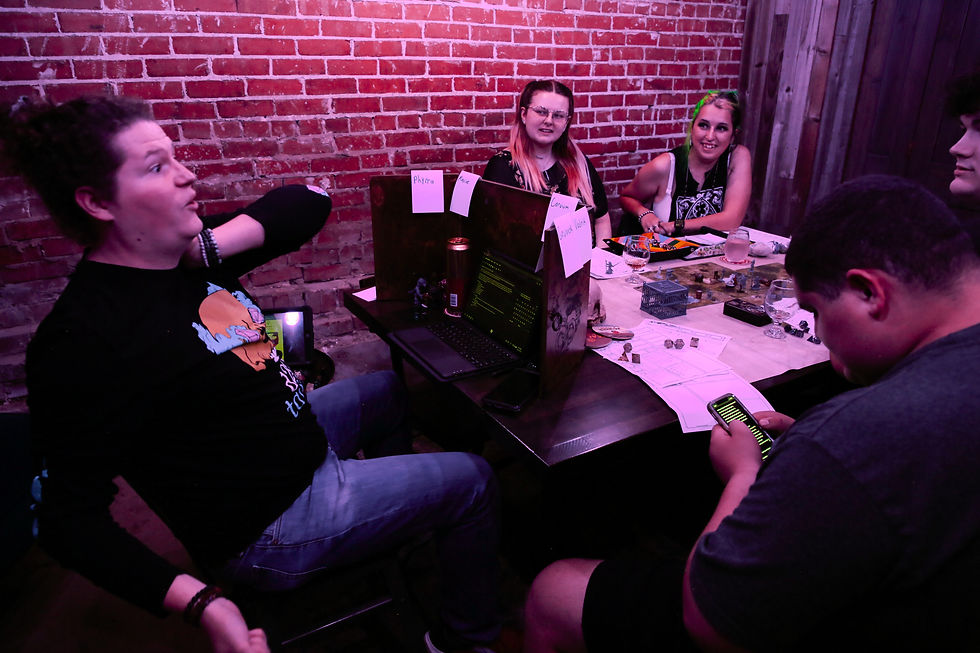Heroes at the Table: Why Role-Playing Games Are Great for Neurodivergent Kids & Teens
- Melissa Strickland
- Sep 30, 2025
- 2 min read
Neurodivergent kids and teens—including those with autism, ADHD, dyslexia, and other neurological differences—have unique needs that are important to understand and support. From tailored educational approaches and structured social opportunities to mental health resources, sensory accommodations, and life skills training, these teens benefit from environments that recognize both their challenges and strengths. TTRPGs offer a unique opportunity to help neurodivergent teens build confidence, develop essential skills, and thrive in ways that honor their individuality.
Structured Social Interaction
Neurodivergent kids often want to connect with peers but may find unstructured social settings overwhelming. TTRPGs provide clear rules, predictable routines, and shared goals, giving teens a framework for interacting with others. Taking turns, collaborating on challenges, and negotiating strategies all provide natural practice for social skills in a low-pressure environment.
Safe Practice for Communication
Playing a character allows teens to express themselves in ways they might not in real life. They can try out conversation styles, practice active listening, and explore different perspectives—all while remaining “in character.” This role-based interaction reduces social anxiety and builds confidence over time.
Flexibility in Expression
Not every teen excels in traditional classroom or structured activities. TTRPGs allow multiple modes of expression—storytelling, drawing maps, creating characters, or acting out solutions. This flexibility gives neurodivergent teens the opportunity to shine in areas that align with their strengths.
Executive Function and Problem-Solving
Games naturally require planning, organization, and decision-making. Managing a character sheet, tracking resources, and solving in-game challenges provide practical executive function practice in a motivating and fun context. Teens learn to adapt when plans change, which can build resilience and coping skills for everyday life.
Emotional Regulation and Confidence
Setbacks in the game—losing a challenge, making a risky choice, or navigating unexpected story twists—give teens a safe environment to practice handling frustration and disappointment. Successes in the game, meanwhile, foster a sense of achievement and boost self-efficacy, helping teens feel capable both in and outside the game.
A Strengths-Based Approach
TTRPGs celebrate different ways of thinking and problem-solving. Teens who notice patterns, enjoy rules, or excel at creative thinking can use these strengths to help their team succeed. Every contribution matters, and this approach reinforces that differences are valuable and celebrated.
Building Community and Belonging
Finally, TTRPGs offer a community space where neurodivergent teens feel accepted. Shared adventures, teamwork, and collaborative storytelling help foster friendships and provide a sense of belonging that can be difficult to find in other settings.
Tabletop role-playing games are more than just a hobby—they are a powerful tool for growth. For neurodivergent kids and teens, TTRPGs provide structured social opportunities, safe emotional exploration, and a strengths-based space to build confidence, creativity, and real-world skills. With supportive facilitation, these games can help teens thrive while having fun and forging meaningful connections.
If you’re curious about whether therapeutic gaming could benefit your teen, consider reaching out to me at Sea Glass Therapy.




Comments